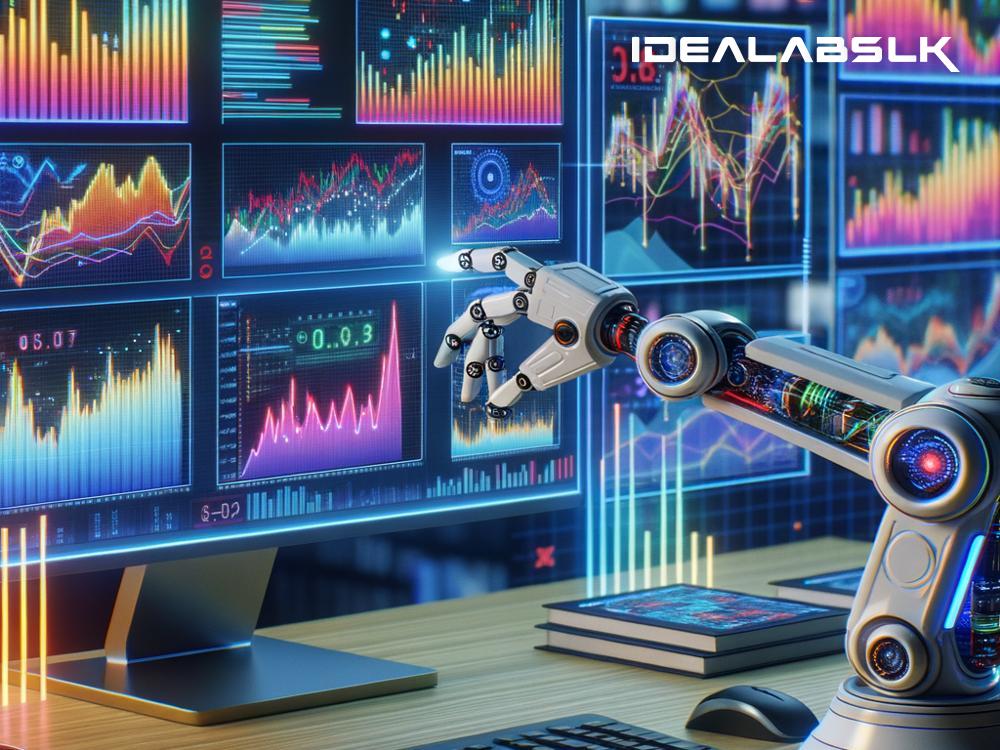The Role of AI in High-Frequency Stock Trading
Welcome to the fast-paced world of high-frequency stock trading (HFT)! Imagine a vast ocean where traders, like speedboats, zoom across the surface, buying and selling stocks faster than you can blink. Now, what if I tell you that in this analogy, artificial intelligence (AI) is the turbocharger that makes these speedboats go even faster? That's right, AI is revolutionizing the way trading happens on stock markets, and here’s how.
The Basics of High-Frequency Trading
High-frequency trading is all about speed. Traders use powerful computers to execute millions of orders at lightning speed. These trades are often made in fractions of a second, exploiting tiny price differences across stock markets. Think of it as trying to catch a mosquito with a net; you need to be quick and precise, and that's where AI comes in.
AI: The Game Changer in HFT
AI, specifically machine learning algorithms, is like the brain behind the operation, making split-second decisions on which trades to make. These AI systems are trained on vast amounts of data, learning from the market's history to predict future price movements. It's like having a crystal ball, but instead of magic, it uses data and math.
1. Data Analysis and Prediction
One of the critical roles of AI in HFT is analyzing large volumes of data quickly and accurately. The stock market generates massive amounts of data every second, and AI algorithms excel at sifting through this information to identify profitable trading opportunities. They look for patterns, trends, and anomalies that are invisible to the human eye, making predictions about future price movements based on historical data.
2. Speed and Efficiency
When it comes to HFT, every millisecond counts. AI enhances the speed and efficiency of trading activities. Since AI systems can process and analyze data much faster than humans, they can react to market changes instantaneously. This speed allows traders using AI to be steps ahead of those relying on traditional methods.
3. Risk Management
AI also plays a critical role in managing risk. By analyzing market conditions and the performance of various stocks, AI algorithms can adjust trading strategies in real-time to minimize losses. They can automatically detect when the market conditions are unfavorable and reduce the trading volume or pull out of risky positions, helping protect investments from sudden market downturns.
Challenges and Concerns
However, it's not all smooth sailing. The rise of AI in stock trading also brings challenges and ethical concerns.
1. Market Fairness
One of the significant concerns is the question of fairness. With advanced AI technologies at their disposal, big firms can dominate the trading landscape, leaving smaller players at a disadvantage. It raises questions about market equality and the accessibility of these technologies to all market participants.
2. Regulatory Hurdles
Regulating AI in HFT is another challenge. The speed and complexity of AI-driven trades make it difficult for regulators to monitor and control the market effectively. There's a need for new rules and frameworks that can keep up with the rapid evolution of technology in finance.
3. Systemic Risks
The reliance on AI also introduces systemic risks. If many trading firms use similar AI models, they might all make the same trades at the same times, potentially leading to market instability or even crashes. Hence, diversifying trading strategies and ensuring robust risk management practices are crucial.
The Future of AI in HFT
Despite these challenges, the role of AI in high-frequency stock trading is only expected to grow. As AI technologies advance, they'll become even more adept at predicting market movements, managing risks, and executing trades at unimaginable speeds. The future of trading lies in the ability to harness and continually innovate these AI capabilities while addressing the ethical and regulatory concerns that come with them.
In conclusion, AI is revolutionizing high-frequency stock trading by making it faster, more efficient, and more intelligent. It's like adding a turbocharger to an already fast-moving vehicle, allowing it to navigate the complex world of stock trading with unprecedented speed and precision. However, as with any powerful tool, it's essential to use AI responsibly, ensuring fair and stable markets for all participants. As we move forward, the fusion of AI with finance will undoubtedly continue to fascinate and challenge traders, regulators, and technologists alike.

